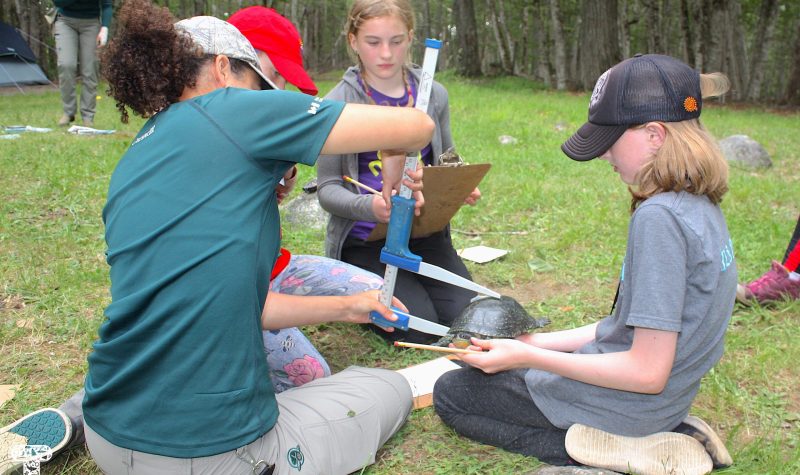A program launched through Parks Canada got young girls into the woods and working on science.
Kejimkujik National Park and Historic site has joined with the Terranaut Club to encourage women and under-represented genders to enter STEM fields.
According to reports, those groups account for just 25 percent of people involved in science, technology, engineering, and mathematics (STEM) across Canada.
This past summer Parks Canada staff and Terranaut Club teamed up to offer youth aged 9-18 the experience of working on three separate projects mentored by women.
Terranaut Club founder Julia Whidden says you never know what event will spark someone’s passion for learning.
“Sometimes all you need is one really meaningful experience that can change everything for you and open a lot of new doors to careers that maybe you never considered,” said Whidden.
Over three outings the youth and their mentors studied funghi, worked on conservation programs involving piping plovers, sea birds and seals, looked into the impacts of invasive species like chain pickerel and monitored the progress of blanding's turtles.
Whidden says the association with Keji happened after an executive with Parks Canada heard her being interviewed on the radio and approached her with the thought both groups had something to offer.
Parks Canada Environmental Scientist Megan Gallant was one of the mentors involved in the program.
She says Kejimkujik is the perfect place to introduce youth to STEM.
“We are among a few national parks and systems in the world that have a great system wide ecological integrity monitoring and reporting program,” said Gallant. “So across the country we have more than 700 scientific measures that inform park-specific priorities and guides to restoration action so we certainly do have a lot of exciting and hands-on science and nature experiences to offer youth.”
Gallant says she remembers being a young girl and feeling that the environmental field wasn’t for her based on her gender.
She’s glad to now mentor other girls and show STEM is for everyone.
“I'm so happy, on a personal note, to see programs like this because I would have loved to have these when I was a little girl growing up to kind of reinforce yourself and see other females in the field doing the work that you are very capable of doing.”
Whidden says it’s important for the group to make the experience available to everyone and so they offer a pay what you can model.
The Terranaut Club receives funding from corporate donations, grants and fundraising.
Families are asked to pay what they can so those that can pay a little more help provide an experience for those who maybe can’t afford as much.
Whidden says STEM fields are only going to become more important and the people working to drive technology need to represent everyone.
“It’s essential that they are diverse so that we can make sure that when we're tackling these problems were tackling them from, you know responsible points of view, diverse points of view,” said Whidden. “Making sure that the challenges that we face, we’re really thinking of outcomes that are going to benefit everyone and not just people who look like we do.”
She expects the mentor program will continue next year is hopeful collaboration between the Terranaut Club and Parks Canada will become a formal partnership.
To learn more about the STEM mentorship programs, head to the Terranaut Club website.
E-mail: edhalversonnews@gmail.com
Twitter: @edwardhalverson
To listen to the broadcast of this story, press play below.


